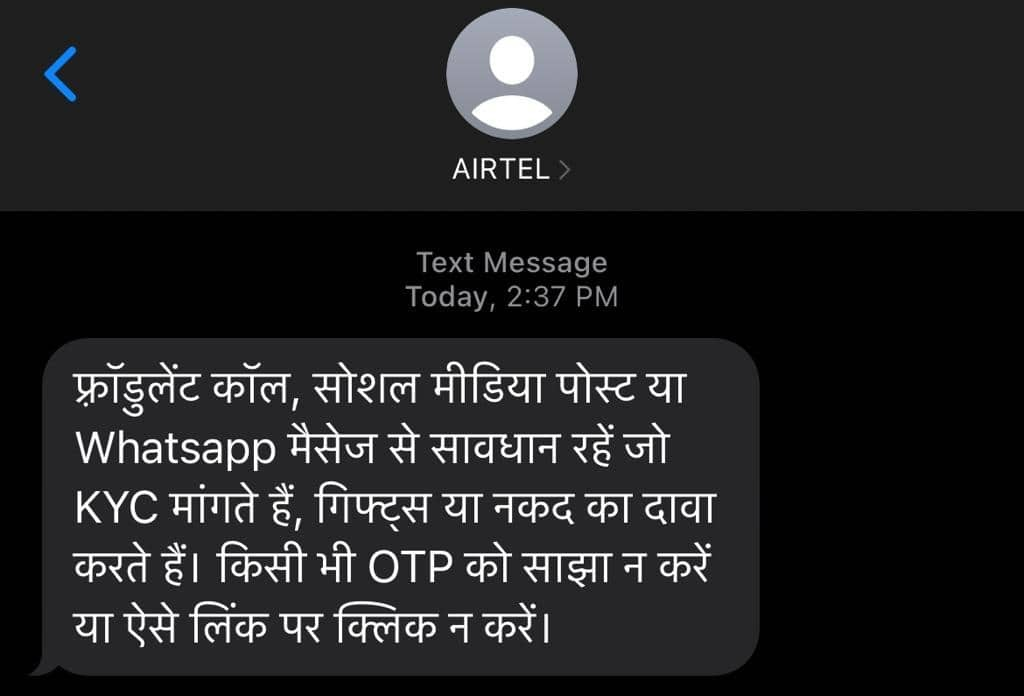Beware of THIS message! Airtel warns customers about KYC frauds, here’s how to stay safe
Telecom customers frequently receive notifications requesting KYC verification, failing which they will lose access to their phone number in 24 hours.
- Airtel warns users against KYC frauds.
- Airtel alerts customers so that they don't do certain things.
- Users may quickly identify scam communications since they will have spelling and grammatical errors.
Trending Photos
)
New Delhi: Airtel has issued a new warning to its customers about KYC and OTP frauds, in which criminals impersonate executives in order to get access to their bank accounts.
Despite the fact that Airtel and other telecom carriers have already warned users about this scam, some unsuspecting clients fall for it.
Telecom customers frequently receive notifications requesting KYC verification, failing which they will lose access to their phone number in 24 hours, according to the message. These messages also include a telephone number that says it belongs to customer service and that customers should dial it. Users may quickly identify scam communications since they will have spelling and grammatical errors, as well as the incorrect spelling of the company name.

Airtel had earlier sent a fraud alert message warning its customers which reads, “Airtel never asks you to share your eKYC details/ Aadhaar number, download any app, call from any mobile number for verification of your Airtel number or any SMS that your SIM has expired. Please stay alert of such calls/ SMS as these can result in financial frauds.”
Here’s how to stay safe:
Tip 1: Third-party applications should never be installed on a mobile device. Users of Android should go to the Settings menu and disable third-party applications.
Tip 2: The majority of these scams have the same message. Double-check the recipient number/source if you receive a message requesting OTP details or personal information. You should also double-check the text message because scam communications typically have a different pattern than genuine bank texts.
Tip 3: Spelling and grammar errors are common in scammed messages. Re-examine any strange messages.
Tip 4: Users should always double-check information on an official website or app. For example, if you receive a strange message from an Airtel executive requesting KYC information, go to the official website or app, login with your phone number, and see if you have any such notification. If this is not the case, the communication you received is a hoax.
Tip 5: Never reveal your OTP with anyone, according to one of the most basic safety guidelines. OTPs are considered a secret code that should not be disclosed with anyone, known or unknown to you.
Stay informed on all the latest news, real-time breaking news updates, and follow all the important headlines in india news and world News on Zee News.
Live Tv







)
)
)
)
)
)
)
)
)
)
